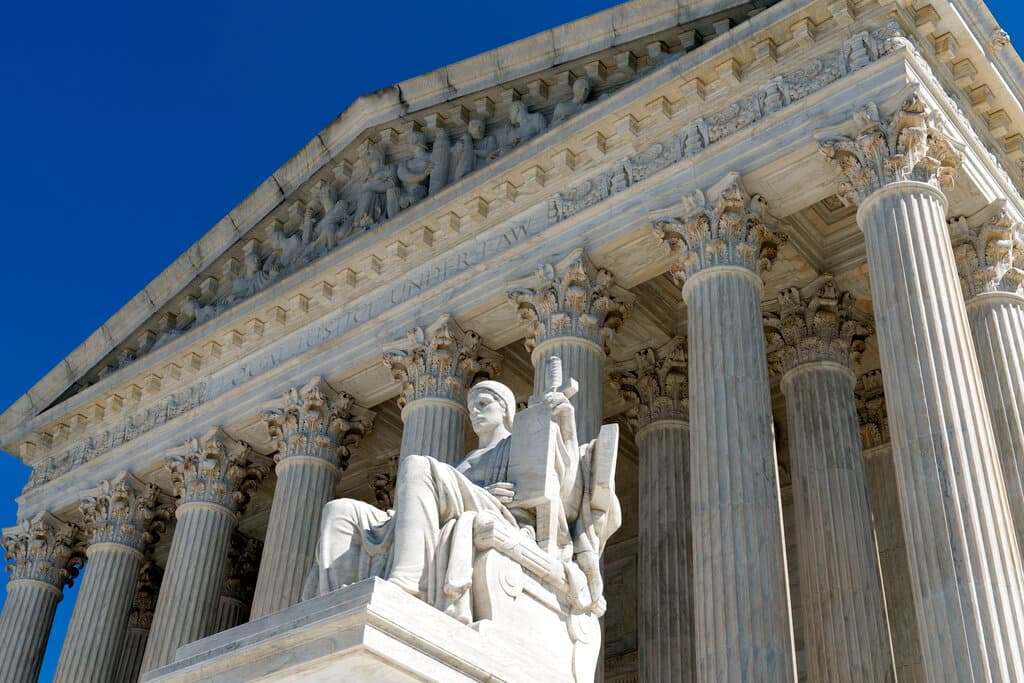Is the Securities and Exchange Commission Unconstitutional?
The Fifth Circuit certainly thinks so. Now the Supreme Court has been asked to review that question as judicial scrutiny of the administrative state moves to a new level.

The Supreme Court has been asked to review the constitutionality of the Securities and Exchange Commission during its next term, setting the stage for a potential showdown that could determine whether the agency, born of the Great Depression, can survive a court that looks on the government’s administrative power with gimlet eyes.
The justices will now weigh whether to grant certiorari to SEC v. Jarkesy at the government’s request after a divided panel of riders of the Fifth United States Appeals Circuit ruled that the SEC is crosswise with the Constitution on three separate grounds. It will now be up to the Biden administration to preserve one of President Franklin Roosevelt’s signature creations.
Jarkesy comes on the heels of the Supreme Court’s ruling last term in EPA v. West Virginia that “clear congressional authorization” is necessary when an agency acts on what the justices call a “major question.” It also follows a grant of certiorari to another case that emerged from the Fifth Circuit, Consumer Financial Protection Bureau v. Community Financial Services Association of America, Limited.
In that challenge to administrative authority, the riders ruled that the funding mechanism for Senator Warren’s brainchild signed into law by President Obama, which is outside of the usual appropriations scheme — ostensibly to secure its independence — violates the Constitution, which “ensures Congress’s exclusive power over the federal purse.”
This case began in 2013, when the SEC ordered George Jarkesy and his firm, Patriot28, to appear before an administrative law judge — creatures of the administrative state, not Article III — regarding their alleged mismanagement of a pair of hedge funds. Mr. Jarkesy challenged the SEC’s constitutional legitimacy to sit in judgment of his financial stewardship.
A federal district judge told him that he had to wait to mount his appeal until a final decision was rendered. The gears of government turn slowly, and eventually Mr. Jarkesy was found to have violated securities law. He appealed to the Fifth Circuit, which in May was persuaded that the agency was foreign to the Framers’ designs.
They did so on three grounds. First, that adjudication by administrative law judges violates the Seventh Amendment’s promise that the “right of trial by jury shall be preserved, and no fact tried by a jury, shall be otherwise reexamined in any court of the United States, than according to the rules of the common law.”
The second ground on which the Fifth Circuit found the SEC to be incompatible with the Constitution was its decision to use its own adjudication processes rather than federal district courts to pursue violations of securities laws. This ran afoul of the nondelegation doctrine, which the Supreme Court defined in A. L. A. Schechter Poultry Corp. v. United States as the principle that “Congress is not permitted to abdicate or to transfer to others the essential legislative functions with which it is thus vested.”
The third ground concerns executive power, and whether Congress impinged on Article II by granting administrative law judges what is known as “dual for-cause limitations,” which the Supreme Court ruled in 2010 violated Article II’s vesting of the entire “executive power” in the president. Two layers of insulation from firing, the court dictates, unlawfully tie the president’s hands.
The government responds by citing a Supreme Court holding that the right to trial by jury does not extend to where Congress “created new statutory obligations, provided for civil penalties for their violation, and committed exclusively to an administrative agency the function of deciding whether a violation has in fact occurred.”
The Biden administration likewise denies that the SEC violated the nondelegation doctrine, opining that the “Commission’s decision whether to pursue an administrative or judicial remedy in a particular case is a core executive function, not the exercise of legislative power.” In other words, Congress is not outsourcing its own responsibilities.
The solicitor general also asserts that the commission’s mechanism does not curtail the president’s purview, arguing that the “scope of the President’s constitutional power to remove and control adjudicators differs from the scope of his power to remove and control other executive officers.”
Reflecting on the apparent growing scrutiny of the high court toward agencies like the EPA, the Consumer Financial Protection Bureau, and, potentially, the SEC, a Columbia Law School professor, Philip Hamburger, reiterates that the “idea that a federal agency can bring an enforcement action outside the court system, without a real judge, and without a jury, is disgraceful.”

